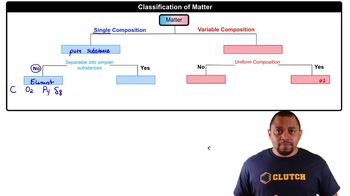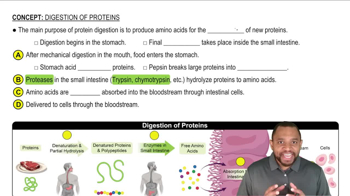Consider the amino acids lysine, valine, and aspartate in an enzyme. State which of these amino acids have R groups that would:
d. form salt bridges
 Verified step by step guidance
Verified step by step guidance Verified video answer for a similar problem:
Verified video answer for a similar problem:



 2:56m
2:56mMaster Summary of Protein Structure Concept 1 with a bite sized video explanation from Jules
Start learning